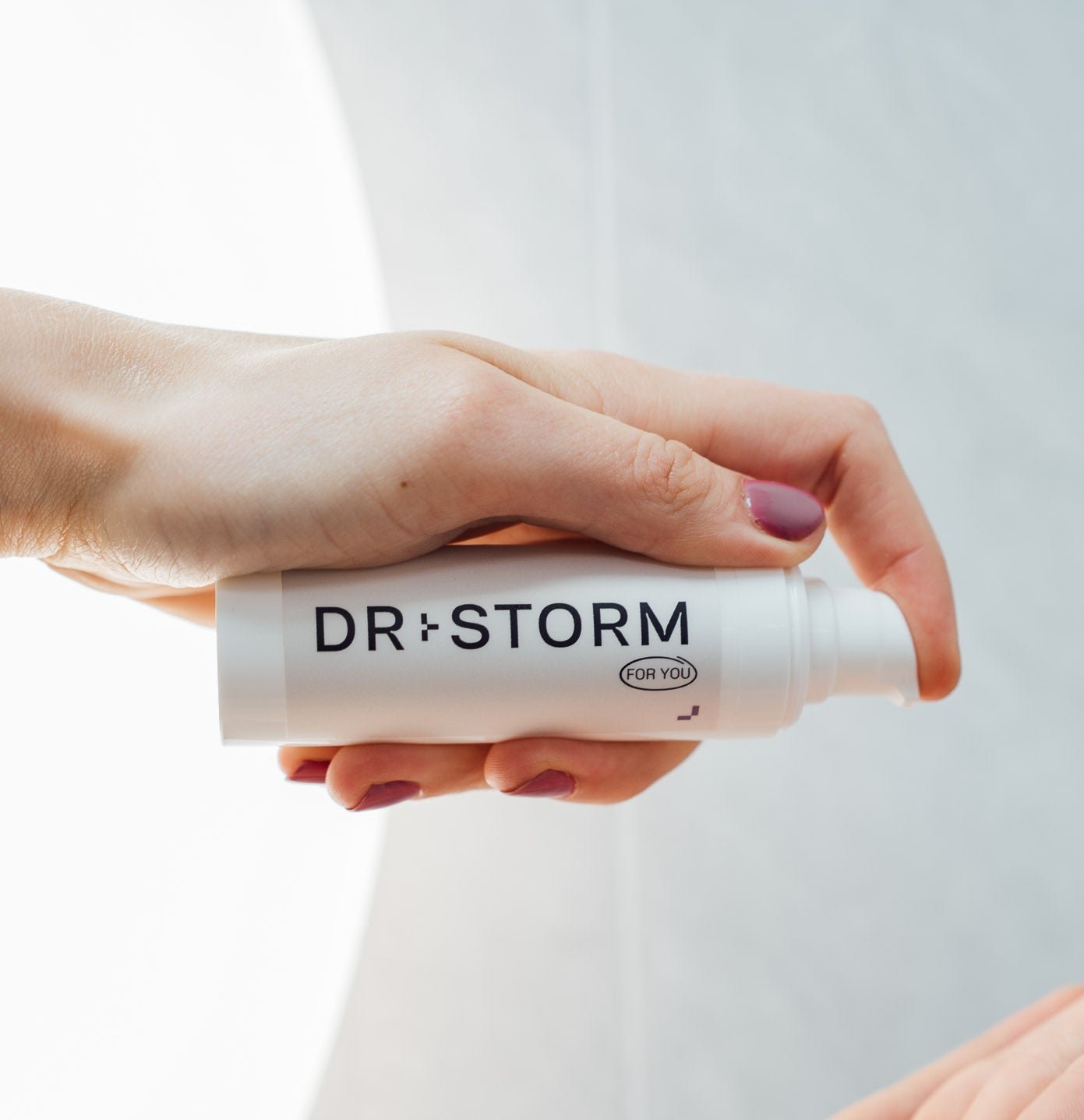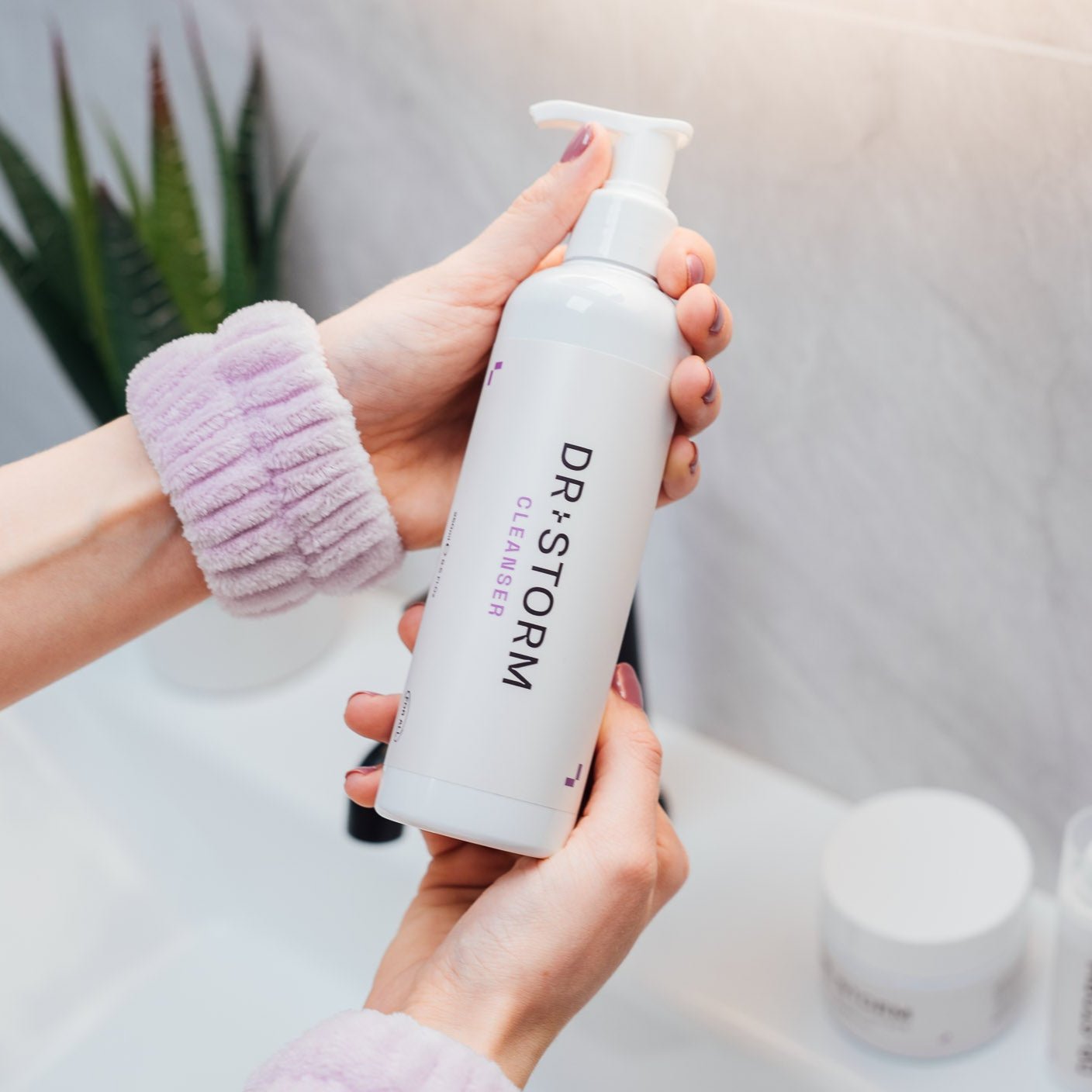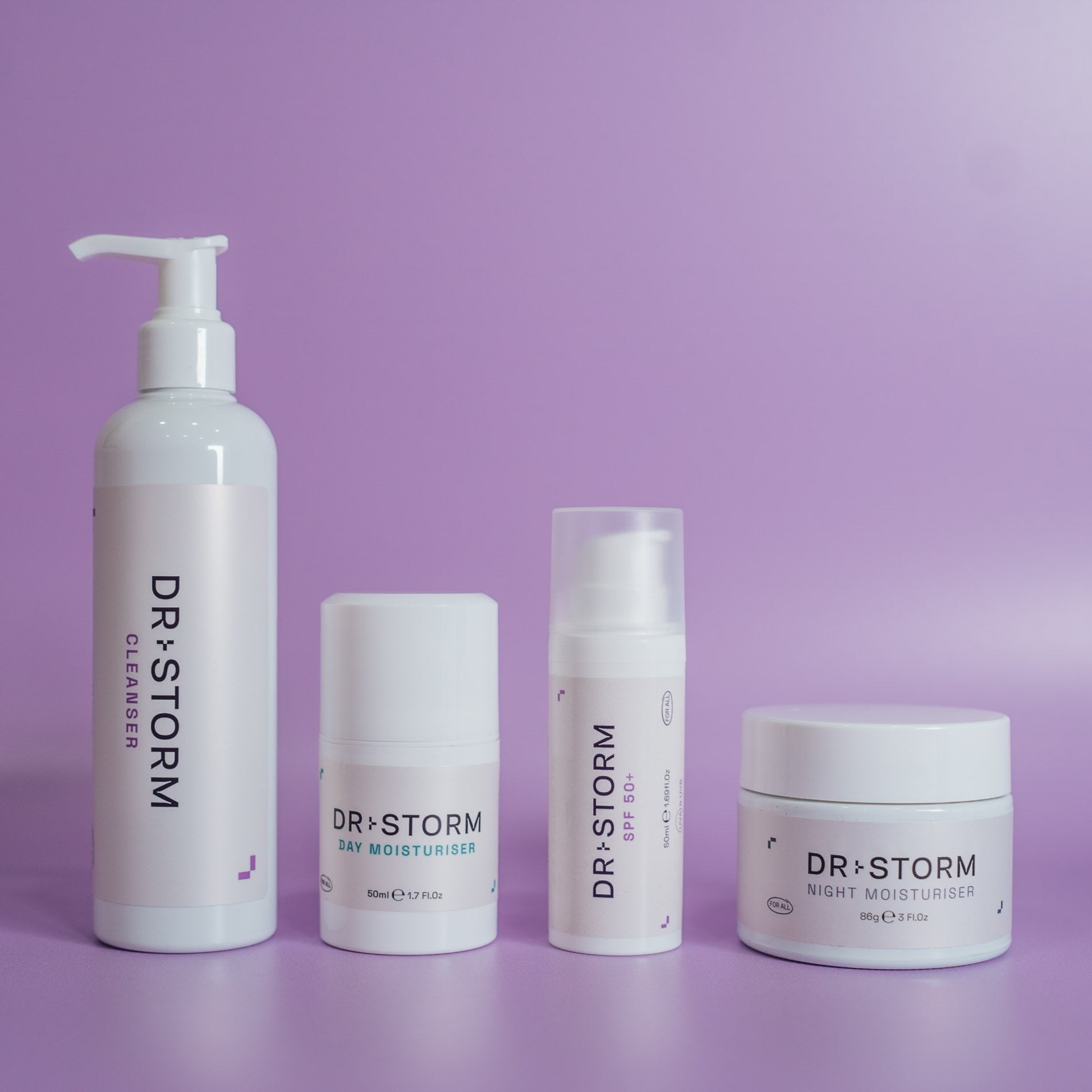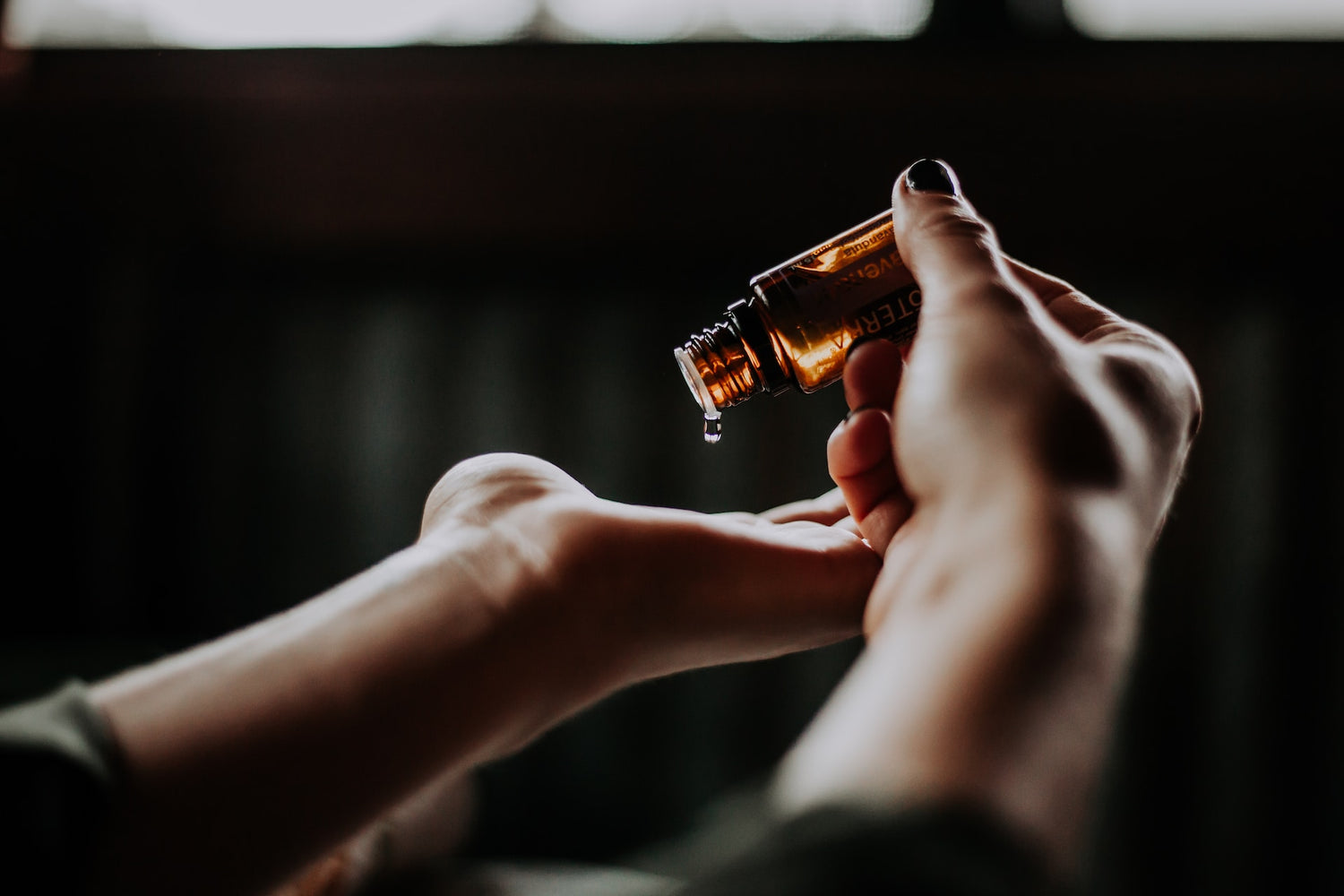Hydroquinone and its uses
Hydroquinone is a chemical compound commonly used in skincare products for its skin-lightening properties. It works by inhibiting the production of melanin, the pigment responsible for skin colour. Hydroquinone is primarily used to treat hyperpigmentation, including dark spots, age spots, and melasma. People find it useful as part of their anti-aging routine as facial pigmentation tends to age! However, it is important to note that the use of hydroquinone should be done under the guidance of a healthcare professional, as there are safety concerns associated with its use. In the UK hydroquinone must be prescribed by a qualified medical professional.
Importance of educating yourself about hydroquinone
Understanding the importance of knowing about hydroquinone is crucial for anyone considering using skincare products that contain this chemical compound. Hydroquinone is a potent skin-lightening agent with various benefits, but it also comes with safety concerns. By educating oneself about hydroquinone, individuals can make informed decisions about its use, taking into account their specific skin needs and consulting with healthcare professionals when necessary.
II. The Science of Hydroquinone
Chemical properties of hydroquinone
- Hydroquinone is a white crystalline solid.
- It is a benzenediol compound with a molecular formula of C6H6O2.
- It is soluble in water and alcohol.
- Hydroquinone has a melting point of 172-174°C.
- It is a reducing agent and can undergo oxidation reactions.
How it works on the skin
Hydroquinone works on the skin by inhibiting the activity of an enzyme called tyrosinase. This enzyme is responsible for the production of melanin, the pigment that gives colour to the skin. By inhibiting tyrosinase, hydroquinone reduces the production of melanin, leading to a lighter and more even skin tone. It can also help fade dark spots and other forms of hyperpigmentation by suppressing the excess melanin production in those areas.
However, it's important to note that hydroquinone should be used with caution and under the guidance of a healthcare professional. Prolonged or excessive use of hydroquinone can lead to side effects such as skin irritation and redness.
Safety Concerns
While hydroquinone can be effective for treating hyperpigmentation and achieving a lighter skin tone, it is important to be aware of the potential safety concerns associated with its use. Prolonged or excessive use of hydroquinone can lead to skin irritation, redness, and even a condition called ochronosis, which causes darkening and thickening of the skin. It is crucial to follow the instructions for use and consult with a healthcare professional if you have any concerns or experience any adverse reactions.
To ensure safe and effective use of hydroquinone, it is recommended to:
- Use hydroquinone products under the guidance of a healthcare professional.
- Follow the recommended dosage and application instructions provided by the manufacturer or healthcare professional.
- Avoid excessive sun exposure and use sunscreen with a high SPF to protect the skin from harmful UV rays.
- Discontinue use if you experience severe skin irritation, redness, or other adverse reactions, and seek medical advice.
Remember, the use of hydroquinone should always be done with caution and under the supervision of a healthcare professional to ensure both safety and optimal results.
III. Benefits of Hydroquinone
Treatment of hyperpigmentation
Hydroquinone is widely recognised for its effectiveness in treating hyperpigmentation. It works by inhibiting the production of melanin, the pigment responsible for dark spots, age spots, and other forms of hyperpigmentation. By reducing the production of melanin, hydroquinone helps to lighten the skin and even out skin tone. It is commonly used to treat conditions such as melasma, dark spots, and post-inflammatory hyperpigmentation.
IV. Hydroquinone Products
Types of hydroquinone products available
- Creams or lotions: Hydroquinone is commonly available in the form of creams or lotions that can be applied topically to the skin.
- Serums: Some skincare brands offer hydroquinone serums, which are lightweight and easily absorbed by the skin.
- Gels: Hydroquinone gels are another option, especially for individuals with oily or acne-prone skin, who tend to prefer a gel texture.
How to Choose the Right Product for Your Skin Type
When selecting a hydroquinone product, it is important to consider your specific skin type and any concerns or sensitivities you may have. Here are some tips to help you choose the right product for your skin type:
- Consult with a healthcare professional: Before starting any skincare regimen that involves hydroquinone, it is recommended to consult with a prescribing medical professional, such as a doctor or dermatologist. They can assess your skin type, evaluate any existing skin conditions, and provide personalised recommendations.
- Consider the concentration of hydroquinone: Hydroquinone products are available in different concentrations, typically ranging from 2% to 4%. Higher doses are available in bespoke labs. Lower concentrations are often recommended for individuals with more sensitive skin, while higher concentrations may be suitable for those with more severe hyperpigmentation. Your healthcare professional can advise you on the appropriate concentration for your skin.
- Assess the formulation: Hydroquinone products come in various formulations, including creams, lotions, serums, and gels. Consider your skin type and personal preferences when choosing a formulation. For example, if you have oily or acne-prone skin, a gel or lightweight serum may be more suitable.
- Check additional ingredients: Pay attention to the other ingredients in the product formulation. Look for ingredients that complement your skin type and address any other skin concerns you may have, such as moisturising ingredients for dry skin or acne-fighting ingredients for oily skin.
- Follow usage instructions: Always follow the recommended dosage and application instructions provided by the manufacturer or your healthcare professional. Use the product as directed, and avoid exceeding the recommended usage to minimise the risk of side effects.
V. How to Use Hydroquinone
Instructions for using hydroquinone safely and effectively
To use hydroquinone safely and effectively, please follow these instructions:
- Cleanse your skin: Start by cleansing your skin with a gentle cleanser to remove any dirt, oil, or impurities. Pat dry with a clean towel.
- Apply a thin layer: Take a small amount of hydroquinone and apply it as a thin layer all over the face - if applied to small affected areas it can lead to a halo effect.
- Massage gently: Use your fingertips to gently massage the hydroquinone into your skin until it is fully absorbed.
- Use as directed: Follow the recommended usage instructions provided by the manufacturer or your healthcare professional. Typically, hydroquinone is applied once or twice daily, depending on the concentration and your healthcare professional's recommendation.
- Protect your skin: After applying hydroquinone, it is crucial to protect your skin from sun exposure. Apply a broad-spectrum sunscreen with a high SPF to the treated areas, even if you're indoors. This helps prevent further hyperpigmentation and protects your skin from harmful UV rays.
- Monitor your skin: Pay attention to any changes or reactions on your skin while using hydroquinone. If you experience severe skin irritation, redness, or other adverse reactions, discontinue use and seek medical advice.
- Consult with a healthcare professional: It is always recommended to consult with a healthcare professional, such as a dermatologist, before starting or changing any skincare regimen involving hydroquinone. They can provide personalised guidance and monitor your progress.
Remember, hydroquinone should only be used as directed and under the guidance of a healthcare professional to ensure both safety and effectiveness.
Tips for getting the best results
To get the best results when using hydroquinone, consider the following tips:
- Consistency is key: Use hydroquinone regularly and consistently as directed by your healthcare professional. Follow the recommended dosage and application instructions to maximise its effectiveness.
- Patience is important: Results may not be immediate, and it may take several weeks or even months of consistent use to see significant improvements in hyperpigmentation. Be patient and continue using hydroquinone as recommended.
- Protect your skin from the sun: Sun protection is crucial when using hydroquinone. Apply sunscreen with a high SPF to the treated areas, even when indoors, to prevent further hyperpigmentation and protect your skin from harmful UV rays.
- Moisturise your skin: Keep your skin moisturised to maintain its health and hydration. Choose a moisturiser suitable for your skin type and apply it regularly, especially after using hydroquinone.
- Avoid irritants: Be mindful of other skincare products or ingredients that may potentially irritate your skin. Avoid using harsh cleansers, exfoliants, or other products that can cause irritation or sensitivity while using hydroquinone.
- Follow a skincare routine: Incorporate hydroquinone into a basic skincare routine that includes gentle cleansing and moisturising.
- Consult with your healthcare professional: If you have any concerns, questions, or experience any adverse reactions while using hydroquinone, consult with your healthcare professional, such as a doctor or dermatologist. They can provide personalised advice and guidance based on your specific needs.
VI. Common Side Effects
List of common side effects
Hydroquinone can present side effects depending on an individuals reaction to the product, some are part of the process and are common early on during treatment and should subside over time while others can be more serious.
Should you experience any of the following, please consult with a medical professional:
- Skin irritation
- Redness
- Dryness
- Itching
- Burning or stinging sensation
- Allergic reactions (rare)
How to minimise or avoid side effects
To minimise or avoid side effects when using hydroquinone, consider the following tips:
- Start with a lower concentration: If you have sensitive skin or are using hydroquinone for the first time, consider starting with a lower concentration. This can help minimise the risk of skin irritation.
- Follow recommended usage: Use hydroquinone as directed by your healthcare professional or the manufacturer. Avoid exceeding the recommended dosage or application frequency.
- Avoid excessive sun exposure: Protect your skin from excessive sun exposure when using hydroquinone. Apply a broad-spectrum sunscreen with a high SPF, wear protective clothing, and seek shade during peak sun hours.
- Moisturise regularly: Keeping your skin moisturised can help minimise dryness and irritation. Use a gentle moisturiser suitable for your skin type.
- Avoid irritants: Be cautious of other skincare products or ingredients that may potentially irritate your skin. Avoid using harsh cleansers, exfoliants, or other products that can cause further irritation or sensitivity when using hydroquinone.
- Discontinue use if necessary: If you experience severe skin irritation, redness, or other adverse reactions, discontinue the use of hydroquinone and seek medical advice. Your healthcare professional can provide further guidance based on your specific situation.
Remember, everyone's skin is different, and individual reactions may vary. It's important to listen to your skin and consult with a healthcare professional if you have any concerns or questions.
VII. Precautions and Warnings
Who should not use hydroquinone
Hydroquinone should not be used by individuals with a known allergy or hypersensitivity to hydroquinone or any of the ingredients in hydroquinone products. It is important to read the product labels and consult with a healthcare professional if you have any concerns or known allergies before using hydroquinone.
Additionally, hydroquinone is not recommended for use by pregnant or breastfeeding women without the guidance and approval of a healthcare professional. It is important to discuss the potential risks and benefits with a healthcare professional before using hydroquinone during pregnancy or while breastfeeding.
If you have any underlying medical conditions or are taking medications, it is crucial to consult with a healthcare professional before using hydroquinone to ensure it is safe for you.
Remember, it is always best to consult with a healthcare professional for personalised advice and recommendations regarding the use of hydroquinone.
Safety precautions and warnings
- Avoid contact with eyes and mucous membranes.
- Do not use hydroquinone on broken or irritated skin.
- Discontinue use if severe skin irritation or allergic reactions occur.
- Keep out of reach of children.
- Store in a cool, dry place away from direct sunlight.
- If pregnant or breastfeeding, consult with a healthcare professional before using hydroquinone.
- Individuals with known allergies to hydroquinone or any of the ingredients should not use hydroquinone.
- Consult with a healthcare professional if you have any underlying medical conditions or are taking medications before using hydroquinone.
VIII. Alternatives to Hydroquinone
Other options for treating hyperpigmentation
There are several alternatives to hydroquinone that claim to treat hyperpigmentation. One option that can lead to improvement is:
Retinoids: Retinoids, such as retinol or tretinoin, can help improve hyperpigmentation by promoting skin cell turnover. They are often used in combination with other treatments for optimal results.
- Pros: Promotes skin cell turnover, and offers additional anti-aging benefits.
- Cons: May cause skin irritation and increased sensitivity to the sun. Requires gradual introduction to the skin to minimise side effects.
IPL/BBL/Laser Treatment: The only other evidenced based treatment is IPL/BBL/laser treatment which can be more expensive and can involve some downtime…and does require repeated treatments.
- Pros: Can effectively improve hyperpigmentation, offers long-lasting results and can be used for various skin concerns, including pigmentation, sun damage, and vascular issues.
- Cons: Can be more expensive compared to other treatment options, may require multiple sessions for optimal results and some individuals may experience temporary redness, swelling, or mild discomfort after the treatment.
There are multiple other skincare products claimed by big skincare companies to improve pigmentation. However, there is little medical evidence that any of these work. Ingredients such as vitamin C, kojic acid, azelaic acid and arbutus are simply not as effective as hydroquinone and tretinoin in treating hyperpigmentation.
It is recommended to consult with a healthcare professional, such as a dermatologist, to determine the most suitable alternative treatment option for your specific needs.
IX. Conclusion
Summary of Key Takeaways
- Hydroquinone is a chemical compound commonly used in skincare products for its skin-lightening properties.
- It works by inhibiting the production of melanin, the pigment responsible for skin colour, and is primarily used to treat hyperpigmentation.
- Hydroquinone should be used under the guidance of a healthcare professional, as prolonged or excessive use can lead to side effects such as skin irritation and very, very rarely ochronosis.
- Understanding the importance of knowing about hydroquinone is crucial for anyone considering using skincare products that contain this chemical compound.
Final Thoughts and Recommendations
Hydroquinone can be an effective treatment option for individuals with hyperpigmentation concerns. However, it is important to approach its use with caution and under the guidance of a healthcare professional. Here are some final thoughts and recommendations:
- Consult with a healthcare professional: Before starting or changing any skincare regimen involving hydroquinone, it is recommended to consult with a healthcare professional, such as a dermatologist. They can assess your specific needs, evaluate any existing skin conditions, and provide personalised recommendations.
- Follow recommended usage instructions: Use hydroquinone as directed by your healthcare professional or the manufacturer. Avoid exceeding the recommended dosage or application frequency to minimise the risk of side effects.
- Protect your skin from the sun: Sun protection is crucial when using hydroquinone. Apply a broad-spectrum sunscreen with a high SPF to the treated areas, even when indoors, to prevent further hyperpigmentation and protect your skin from harmful UV rays.
- Monitor your skin: Pay attention to any changes or reactions on your skin while using hydroquinone. If you experience severe skin irritation, redness, or other adverse reactions, discontinue use and seek medical advice.
- Individual results may vary: Keep in mind that individual responses to hydroquinone may vary. It may take time to see significant improvements, and some individuals may be more sensitive to its effects than others. Patience and consistency are key when using hydroquinone or any skincare treatment.
Remember, it is always best to consult with a healthcare professional for personalised advice and recommendations regarding the use of hydroquinone or any other skincare products.







